Connecting • Embracing • Transforming
360 Experience
The 360 Experience seeks to build safe and welcoming school communities throughout New York City in which LGBTQ+ students can thrive. The 360 Experience is made up of professional development sessions, workshops and community conversations that engage educators, students and parents in learning opportunities.
For the 2024-2025 school year, we are excited to provide the following workshops, and more:
- Being an Ally, for parents and teachers, focused on individual and classroom allyship strategies.
- The Grounding, build a collective foundation that encourages positive youth development and leadership.
- Vogue/Ballroom, get ready to move in this workshop that highlights the creativity and legendary history of the LGBTQ+ community!
For LGBTQ+ students, we aim to create a fun and safe space to explore identities and jumpstart change in their schools. For parents, teachers, and the larger student body, we aim to foster a welcoming and non-judgmental environment for participants to ask questions and gain a deeper understanding of allyship.
Our workshops are discussion-based and collaborative, and we seek to build strong, ongoing partnerships with our communities! All 360 workshops are subsidized by a DYCD grant.
What do I do next to book a workshop or ask questions?
Please reach out to Live Out Loud team member Raul R. Rivera (Raul@liveoutloud.org). You can also schedule a time to chat with Raul at your convenience here.
Learn more in our PDF overview.
[pdf-embedder url=”https://liveoutloud.org/wp-content/uploads/2024/09/360-Experience-Program-Overview-2024-2025.pdf” title=”360 Experience Program Overview 2024-2025″]Workshops for Educators
- Increase skills to elevate your school climate.
- Build a collective foundation for a supportive environment that encourages wellness, positive youth development and leadership.
- Discover the importance of allyship with a focus on understanding identities, identifying misconceptions and reviewing best practices.
- Brainstorm active allyship steps and best strategies for supporting LGBTQ+ youth in and out of the classroom.
- Explore and learn the basics of gender identity, gender expression and pronouns.
- Gain an understanding of advocacy and classroom guidelines to elevate an inclusive classroom.
- Become familar with NYC DOE guidelines regarding LGBTQ+ students with a focus on gendered language and facilities access.
- Learn how to honor LGBTQ+ students’ rights in a school environment.
Workshops for LGBTQ+ Students & GSA Clubs
- Learn the basics of gender identity, gender expression, and attraction.
- Gain an understanding of your “ideal self” through visualization.
- Learn about the history and culture of the creative and resilient LGBTQ+ House/Ballroom community.
- Celebrate and have fun learning the different styles and elements of vogue performance.
- Explore the power of creativity to impact change.
- Learn about LGBTQ+ change makers through time.
Create personal affirmations.
- Gain Gain an understanding of DOE policies and protections for LGBTQ+ students through engaging activities and scenarios.
- Learn about your rights as DOE students, evaluate your school’s environment, and brainstorm actions your club can take!an understanding of DOE policies and protections for LGBTQ+ students through engaging activities and scenarios.
- Learn about your rights as DOE students, evaluate your school’s environment, and brainstorm actions your club can take!
Workshops for the Entire Student Body
- Explore and learn the basics of gender identity, gender expression and pronouns.
- Gain an understanding of advocacy in a school environment.
- Discover the importance of allyship with a focus on understanding identities, the power of language, and avoiding microaggressions.
- Engage in an open discussion about the importance of allyship in school and social environments.
Workshop for Parents
- Join a supportive environment to discuss and identify ways to practice self care as parents and support LGBTQ+ young people.
- Learn more about the importance of allyship with a focus on understanding identities, the power of language, and avoiding microaggressions.

